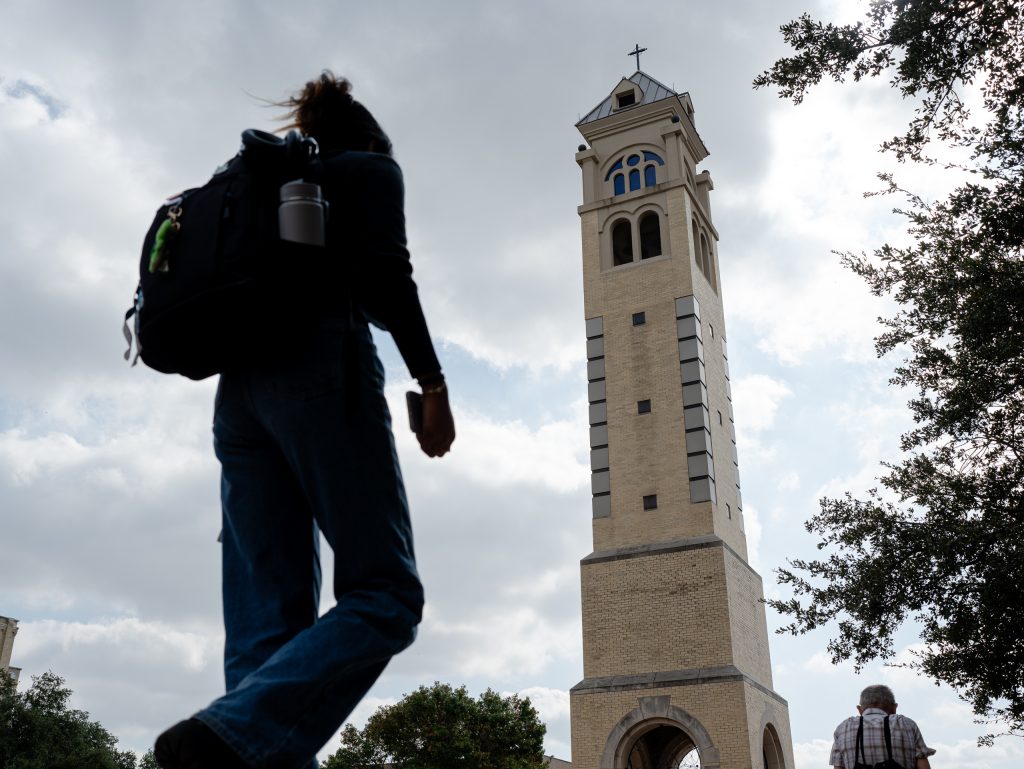San Antonio has seen a rise in college enrollment in recent years, but retention and graduation rates remain low in comparison, and the city wants to know why.
Hoping to answer that question, the city’s Higher Education Student Advisory Board — comprised of one appointed college student representative for each city district — created a survey asking local college students what struggles they face in completing their education.
Jonah Espinoza, an appointed member of the board for District 8 and a second-year student at the University of Texas at San Antonio, said the board’s goals are to increase college enrollment, improve college retention and graduation rates and advise the city on policy issues affecting higher education.
“The city is already doing a great job on college enrollment,” but getting students to stay in college and graduate is where the struggle really lies, Espinoza said.
Last year, Texas A&M University-San Antonio saw a 5.6% increase in enrollment in the fall, UTSA saw a 3% increase and the Alamo Colleges District saw a 13.7% increase.
According to the U.S. Department of Education, TAMU-SA’s graduation rate is 66%, UTSA’s rate trails behind at 55% and graduation rates for the five colleges within the Alamo Colleges District averages below 20%.
San Antonio consistently ranks low in educational achievement on the national stage, and higher education institutions often conduct their own student surveys. For example, last year TAMU-SA conducted a “self-study” to evaluate and improve the school’s academic advising. The survey was sent to students in an email, which asked them to describe their interactions with academic advisors and rate how effective they were.
But Espinoza said that kind of data isn’t enough.
“San Antonio has such a unique socioeconomic context and so many diverse backgrounds,” and that isn’t necessarily reflected in national data or surveys conducted by higher education institutions, Espinoza said. “We want data from a citywide perspective to maybe see where City Council and the mayor can support students in whatever way the data will show us.”
Eligible respondents are not limited to currently enrolled college students. The survey is also for those who were enrolled at a college or university in San Antonio in the past two years.
“People who have recently withdrawn from college — that’s a harder demographic to reach. But we pretty much want to hear what made you consider or ultimately decide to withdraw from an institution and what were those primary factors that led to that decision,” Espinoza said.
As for the survey’s dissemination, the appointed student board members are reaching out individually to student government associations, college newspapers and university presidents from higher education institutions around San Antonio. Espinoza said the board’s goal is to get at least 500 responses.
Respondents may take the survey in Spanish or English, and if they don’t fit the eligibility requirements, they are directed toward questions regarding their awareness of Ready to Work, a city-wide training, education and employment program.
Micheal Sinden, a workforce administrator with Ready to Work, said the survey is an opportunity to learn more about the people they serve by providing insight into what the barriers are for those who need high school equivalency or an associate or bachelor’s degree to get a better job.
After the survey closes March 16, the student advisory board, which falls under the city’s Department of Human Services, will analyze the data and compile a policy recommendation report to present to the mayor and City Council.
Espinoza said the board doesn’t have a clear timeline for the report’s completion.








